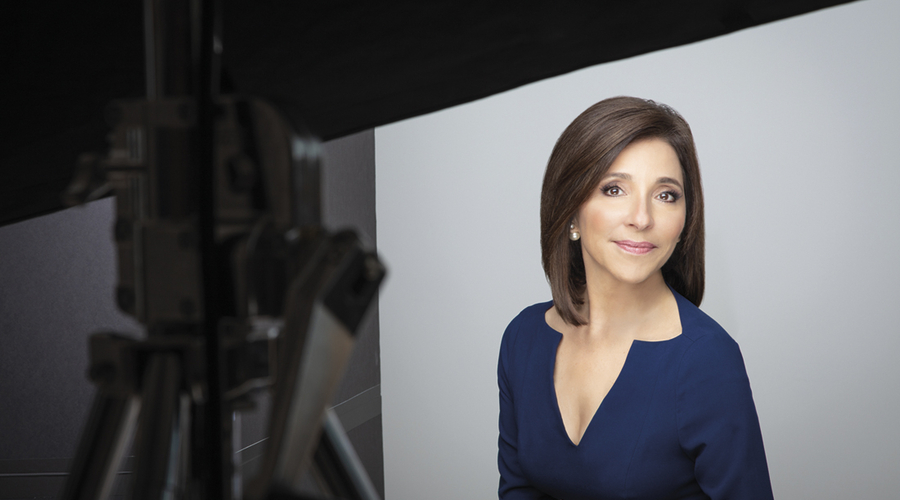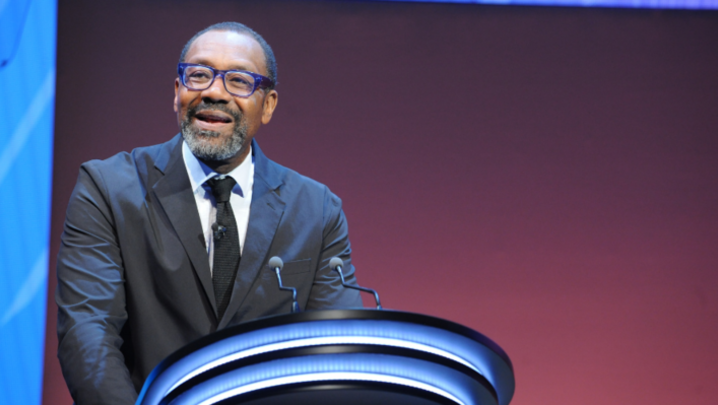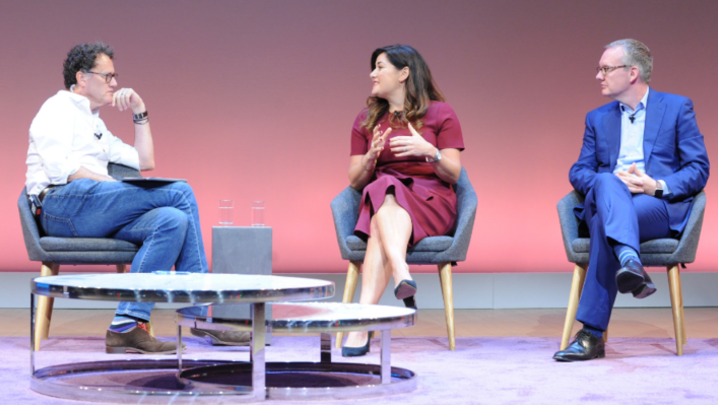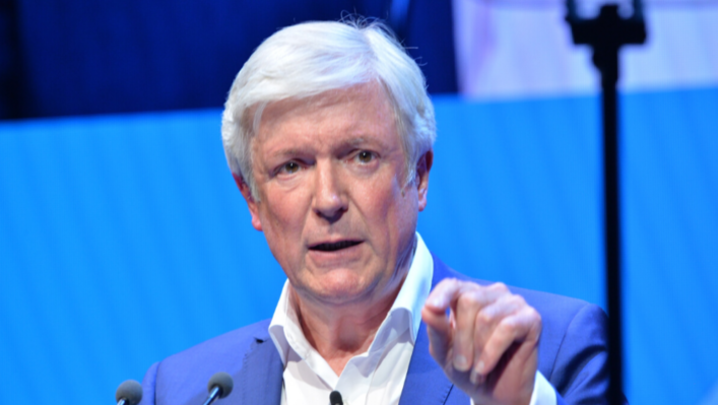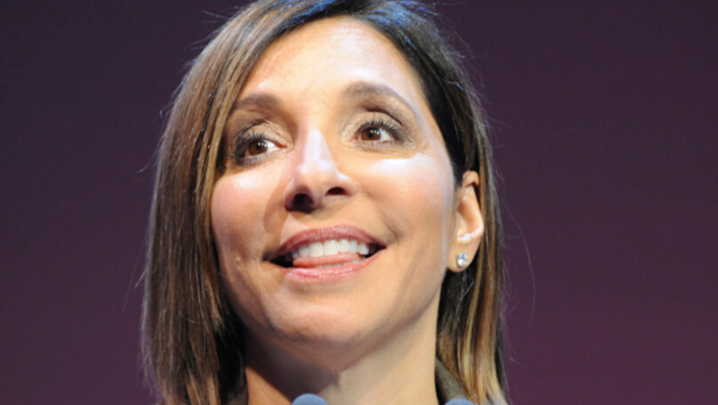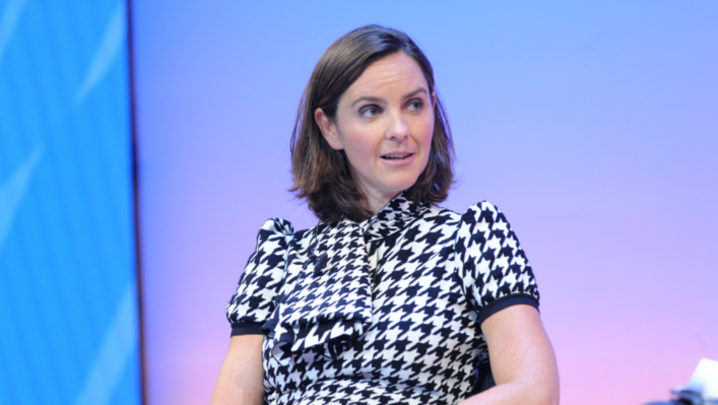NBCUniversal’s Linda Yaccarino outlines her company’s multi-platform strategy to Steve Clarke
Don’t expect Linda Yaccarino to be intimidated by Facebook or Google or any of the other Silicon Valley behemoths. This highly experienced US media executive is renowned for her tough negotiating skills and uber-competitiveness. Not for nothing is the NBCUniversal executive, who reports directly to Comcast chief Steve Burke, known among Manhattan media types as the Velvet Hammer.
The RTS Canbridge speaker once featured as the cover story of US trade paper AdWeek under the headline “Wonder woman”. But, arguably, it is her ability to successfully identify and negotiate change that has secured her reputation as one of the 10 most powerful women in US TV.
“Linda has the ability to stay a step ahead, and I think she’s done that wherever she’s been,” says Julie Rieger, until recently executive vice-president for media at 20th Century Fox, who has known Yaccarino for more than a decade.
On her watch, NBCU has introduced the new advertising metric CFlight in order to better measure all-screen viewing. She is helping to lead the charge as NBCU prepares to launch its eagerly anticipated hybrid streaming service that will carry advertising and be available for free to Comcast and Sky subscribers. There will also be an ad-free version for other subscribers.
Yaccarino, 55, is responsible for the advertising sales and marketing strategy of NBCU’s entire TV portfolio, which includes two broadcast, 17 cable and in excess of 50 digital properties. Taken together, these services generate more than $10bn of advertising revenue. During her stewardship, NBCU’s digital advertising business has grown in value to more than $1bn per year
Her role goes beyond sales to embrace oversight of advanced technology, insights and measurement, business marketing and monetisation teams.
Yaccarino began working at NBCUniversal eight years ago. Before that, she ran ad sales for Turner Broadcasting. She spent almost two decades at the company founded by the maverick Ted Turner, who once said: “Life is a game. Money is how we keep score.” The man who revolutionised TV news by founding CNN was a seminal role model for the young Yaccarino.
“I started out at Turner,” Yaccarino told Television. “I would say that the culture at the time put a heavy emphasis on boldness. We didn’t have as much data or technology, so we had to rely on our own conviction and confidence.
“And there is no one who did that better than Ted Turner. He was a tremendous influence on my career, and I carry a lot of what I learnt from him with me today.”
Arriving at NBCU in 2011, she found a very different company to the present one. “The first year at NBCUniversal was the hardest year I have ever had in my entire career,” she once said. “I was hired to come and head up an entire sales and marketing department. But I was also hired to transform the company.”
True to her word, this single-minded media executive set about modernising NBCU’s advertising operation. Initially, she oversaw cable and digital sales but, within two years, was promoted to lead all cable and broadcast networks, which she brought together under a single portfolio. AdWeek described the move as a “then-revolutionary shake-up that was eventually adopted by almost all of her competitors”.
Determined to break down the silo mentality she found at the company and replace it with a more collaborative working culture, she made sweeping changes. “I was hired to transform the company and it didn’t matter if I was ready or not,” Yaccarino has said.
Today, her teams span both sides of the Atlantic, following the successful bid for Sky last year by Comcast (NBCU’s parent company). She is overseeing a new international advertising and partnership team. This involves building the ad technology infrastructure to enable Comcast, NBCU and Sky to operate what NBCU describes as the world’s first global, premium advertising operation.
At NBCU, she has secured partnerships with such non-traditional players as Apple News, Snapchat, BuzzFeed and YouTube.
What is her secret for being such an effective manager? “I think, when you are talking about such a complex organisation, being an effective manager has meant forging effective partnerships. And that’s true internally and externally.… But we also sit at the intersection of so many different parts of our company, helping bridge this huge portfolio of networks and creatives, who make such great content, with the technology and data we need to measure that content, and to distribute that portfolio to audiences all over the world.
“And that means building relationships and trust with a lot of different people, and showing them how we can help them achieve their goals.”
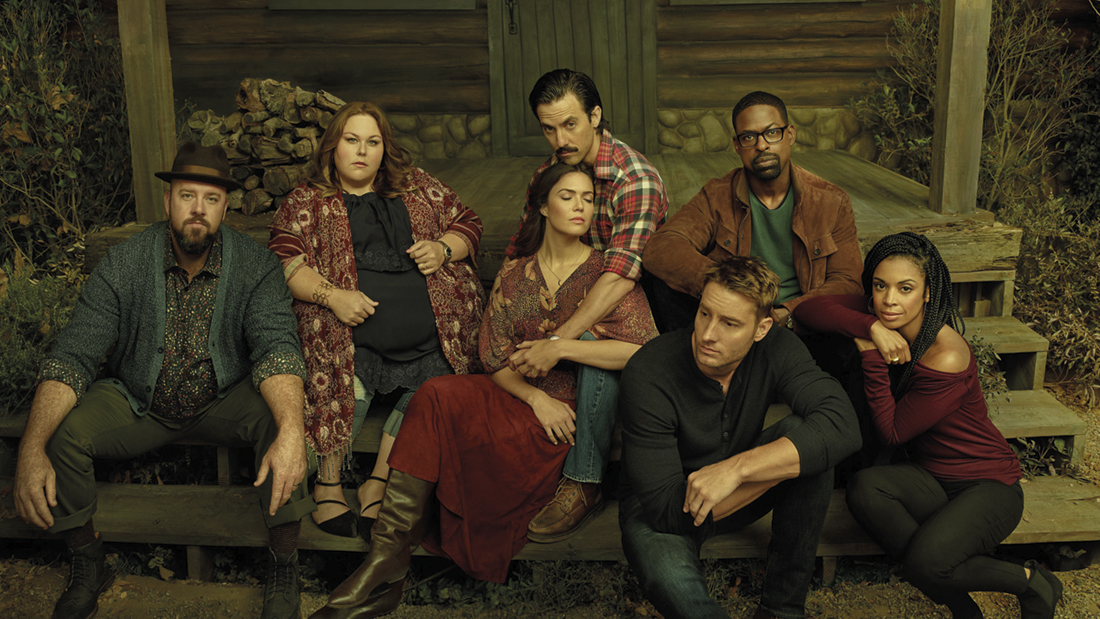
Sharply turned out (she admits to a “mild” fashion addiction) and a fluent talker who avoids the kind of jargon often associated with advertising executives, she is a regular speaker at international media gatherings. Earlier this year, she spoke at the World Economic Forum.
What can Cambridge delegates expect from her? “Well, as they say, I’m not going to give away any spoilers. But you can expect an inside look at how NBCUniversal views globalisation. While the idea of globalisation is not new to NBCU, over the past year that view has started to assert itself with three enormous and new efforts.”
Asked what her key focus right now is, she replies: “Transformation. Companies need to think about how they fit into this rapidly changing world, and how they build for the future. At NBCUniversal, that has meant taking a global view, and investing in the best content, data, and distribution there is. “Already, we’ve got rid of legacy processes, built alternatives to legacy measurement, and embraced innovation at every level. Really, if you’re serious about future-proofing your business, you can’t just make a few tweaks. You have to be serious about transformation.”
One key challenge facing companies such as NBCU is how to grow ad revenue in an on-demand world.
What is the answer? “First off, I think there’s an opportunity because this on-demand world makes so much of our inventory more valuable. People are no longer surfing channels, they are making choices.
“When someone chooses to watch one show out of the hundreds of good shows out there that means that they really care. Some companies see that and are moving away from the ad-supported model.
“But, while other companies are pushing advertisers out, we’re inviting them in. No matter what happens, brands are always going to need a place to tell people there’s a new menu item or a new model or a new movie.
“And the places where you can do that – safely, smartly and at scale – are few and far between. In short, I think it can grow because this on-demand world has made our audiences more engaged, our inventory more valuable and these scaled opportunities more scarce.”
Two years ago, she said: “The next frontier is: How do we really bring it all together in terms of linear and digital?”
In that context, where is NBCU now? “Well, you might have heard, but we just had our first – and the industry’s first – all-screen Upfront. After bringing the company together as one portfolio, and investing in a new measurement [system] that captures consumer behaviour across all screens – CFlight – we have finally brought together and sold our content across all screens. This was a massive effort, and our clients get it.
“They know how consumers work, so we saw 100% adoption of that all-screen measurement in this Upfront. It has been adopted by Sky. Other companies are now following our lead, such as Viacom. Of course, more of the industry can still adopt this all-screen approach, but, at NBCUniversal, we are proud to be leading the way.”
Progress for women at work
Linda Yaccarino: ‘There’s never been a better time to be a woman in our industry. Women are getting more and more opportunities behind and in front of the camera.
‘For our part at NBCUniversal, we’re doing a few things to make sure that we make our workforce and hiring practices more inclusive: we’re offering more flexible work arrangements to accommodate two-parent households. We’re training our HR department on how to write neutral job descriptions.
‘And we’re also piloting “blind resumes”, which have already increased interviews for female candidates in technology by 50%.
‘While there’s definitely more of an awareness surrounding the challenges women face when it comes to getting ahead, we still have a lot of work to do.’
What she’s watching
‘I love This Is Us and Keeping up with the Kardashians, but I’m biased. As for British shows, I am a big Downton Abbey fan, and am so excited that our company is putting out the movie this fall. Very excited to see how the Crawleys are doing.’
NBCU’s new streaming service
Q
For Comcast and Sky subscribers, NBCU’s new streaming service will be free – and ad supported – but isn’t one reason that streaming services are so popular is that they don’t carry ads?
A
Linda Yaccarino: It’s not that consumers won’t tolerate ads. It’s that they won’t tolerate intrusive ads, incessant ads or ads that are just bad. Great ads are another story. Great ads get remembered right alongside the shows we all love.
The data is clear and it’s consistent, that people are good with the right amount of content in exchange for relevant ads. If you don’t overwhelm people with ads, and the ads are interesting, people will watch ads
and then write you a cheque.
Why ads need to get smarter still
Q
You’ve been a pioneer of personalised ads, with commercials tied to specific scenes – but are broadcasters really doing enough in this area?
A
Linda Yaccarino: We’re just beginning to see companies really invest in technology and explore the possibility of personalised and contextually relevant ads. But there is still a lot of untapped potential.
At NBCUniversal, we’ve been developing contextual intelligence, which uses our proprietary AI to read the scripts of shows and commercials and make connections across the portfolio. And addressability continues to improve, especially as we’ve come together with Sky to offer AdSmart.
And I think we’ll see more — it’s exactly the kind of innovative solution that combines the best of what technology offers, and how stories affect us. I have no doubt that it will define the future of advertising.
The future of free-to-air
Q
What’s the future for ad-funded, free-to-air networks – is it about managing decline in an on-demand world?
A
Linda Yaccarino: First off, I don’t think you need to manage decline because our audience isn’t declining. Sure, if you only measured the viewers who are watching shows on their TVs, precisely when a show airs, then you would see decline.
But we all know that’s not how people watch today.
When you really measure everyone who’s watching our shows — when you count the people who watch on their tablets and phones, the people who watch on different platforms a week or even a few months later — a very different picture emerges. Our audience isn’t declining; it’s just dispersing.

